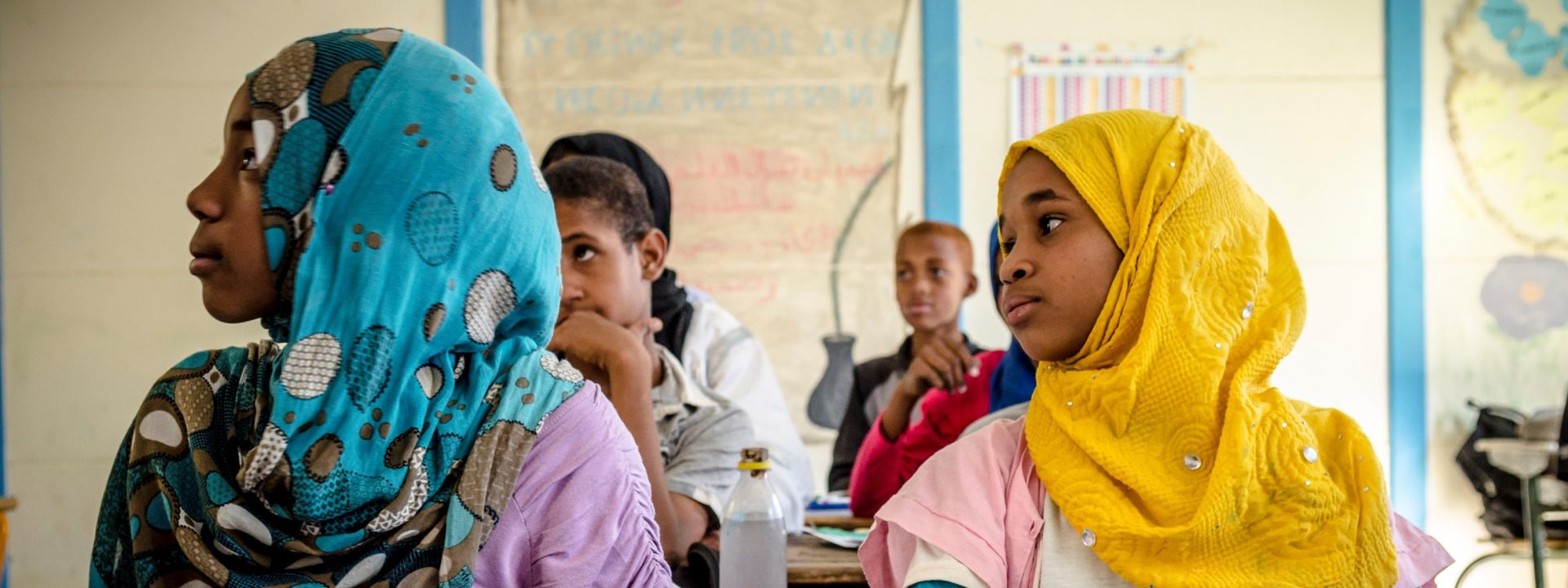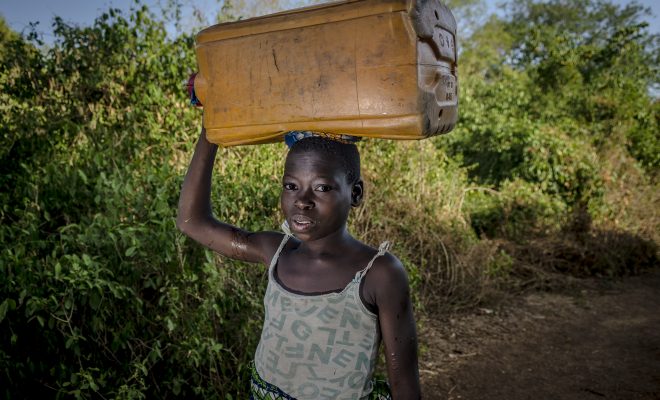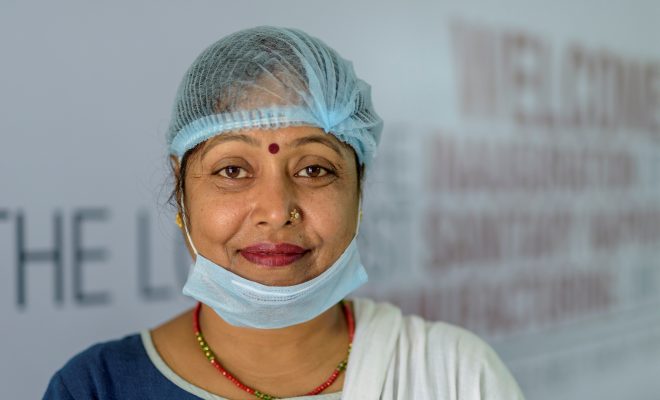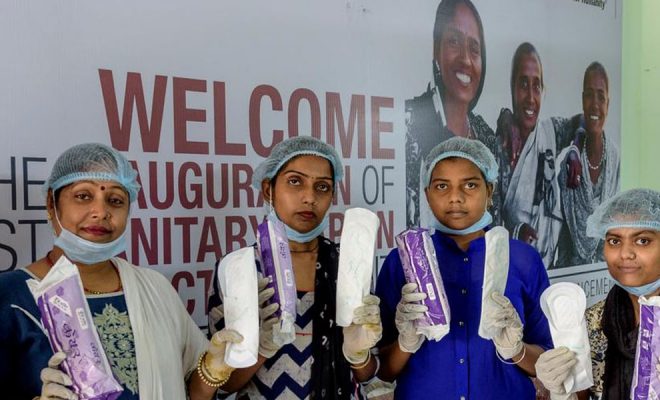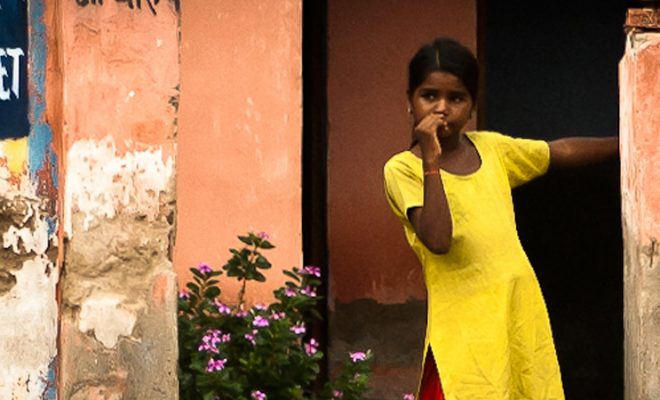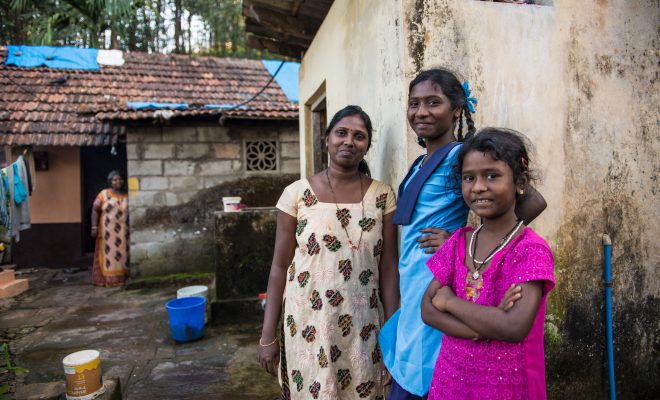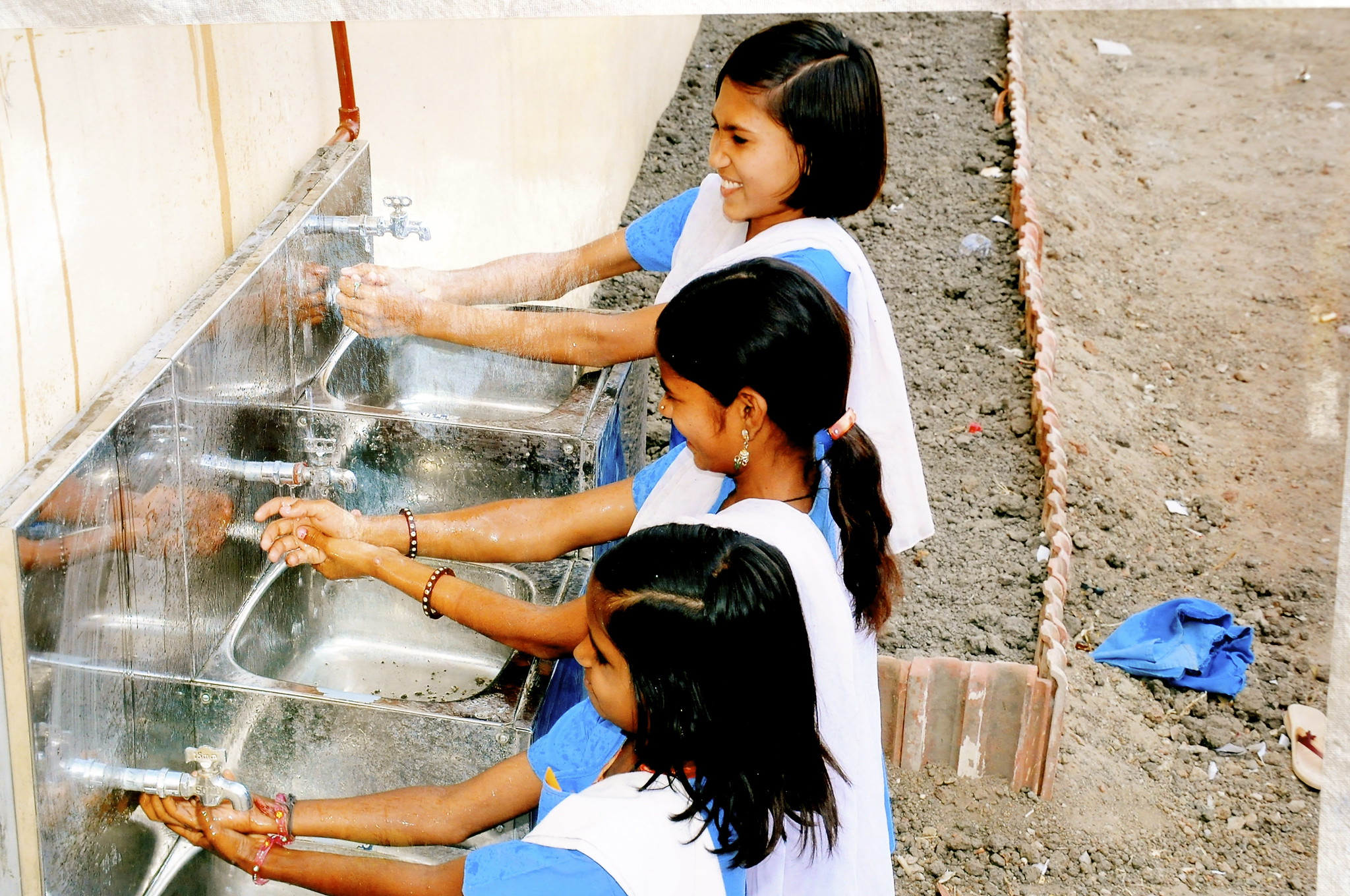
In 2016, only 53 % of schools all around the world had facilities in which students could wash their hands, but 11 % of these did not have any soap.© Antony Robbins.
According to a report by the WHO and UNICEF published two years ago, in 201619 % of the schools all around the world lacked water supply services, affecting nearly 570 million children who had to drink water from unsafe sources. As for sanitation, the figures are worse, as 23 % lacked any kind of facility, which meant that 620 million students are obliged to defecate in the open, in buckets or improvised latrines, normally in a hole dug beside the school. The access to basic hygiene also shows very negative figures: only 53 % of schools had facilities in which students could wash their hands, but 11 % of these did not have any soap.
Childhood health and much more
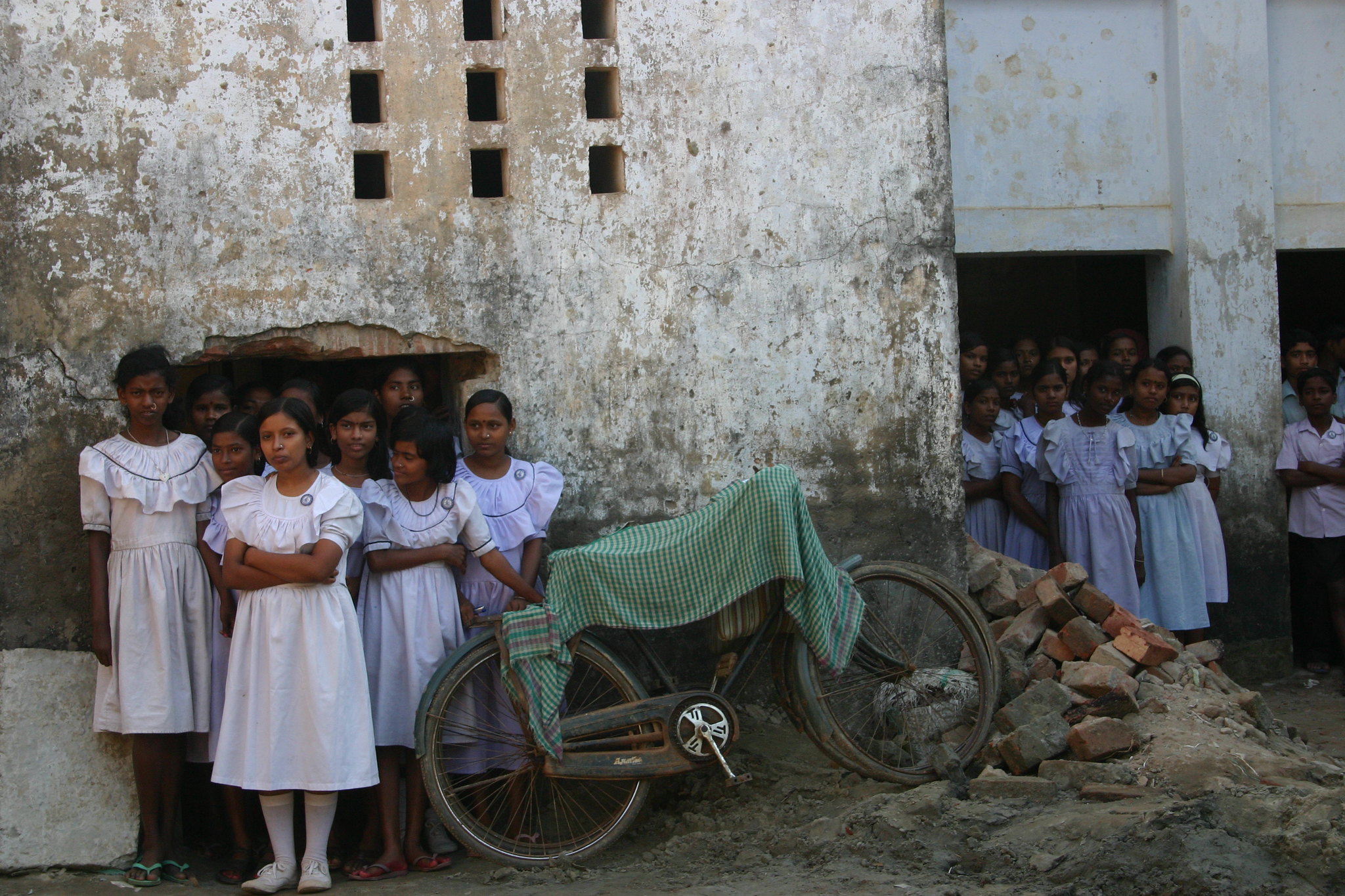
The study by Anjali Adukia highlights that many teenagers stay at home when they are having their period, a situation that ends up being one of the main causes of the final school dropout. © Cecilia Snyder / West Bengal, India.
The report states that, overall, some 850 million children had no or limited guaranteed sanitation in 2016. The COVID-19 pandemic has slowed down improvements since then, as indicated by WHO data, and has thrown many improvement plans into uncertainty because of frozen investments and operational difficulties caused by mobility restrictions.
The severe negative consequences of this situation are incalculable and unacceptable. This scourge, persistent in the schools of the most neglected areas, is one of the many causes of the high levels of infant mortality due to the consumption of unsafe water, which reached 1,800 daily deaths in 2016. But indirect damage extends beyond childhood health and reaches communities, undermining their development capacity, dignity and the attainment of social justice. SDGs, and let alone SDG 4, cannot be discussed without safe access to water, sanitation and hygiene.
The intervention in schools has provided the Foundation with a valuable experience. It allows a comprehensive vision of the multiple and dire consequences suffered by any community and especially by its students, due to the lack of safe water, sanitation and hygiene facilities. Most of them remain ignored in the most economically developed areas of the world. The Foundation has benefitted more than 205,000 students and teachers in nine countries and continues to see schools as one of the priorities in its work, especially since the coronavirus pandemic has worsened the situation of millions of children and young people all over the world.
Sanitation for full schooling and women’s liberation
The lack of water and sanitation facilities is one of the main causes of school dropouts. A study by the researcher of the University of Chicago, Anjali Adukia points out that the simple construction of adequate latrines has a positive impact on educational results, such as the increase in the enrollment rate and the decrease in school dropouts; while there is an increase in the number of students who took and passed exams. These rates significantly increase in the case of gender-segregated latrines, which have a direct influence on the growth of full schooling of girls and teenagers.
There have been substantial improvements in countries such as India, which had around 20 million boys and girls out of school in 2000 (20 % of the children who did not attend school all around the world). Thanks to the government’s School Sanitation and Hygiene Education Project (SSHE), supported by the World Bank, India was able to reduce to six million the number of boys and girls out of school in 2013 (11 % of the world’s total).
However, there is still a long way to go to achieve full schooling in India, a country where intervention to end discrimination against women becomes more urgent, a goal in which sanitation in schools is a key factor. The lack of private sanitation facilities makes girls feel segregated, insecure and ashamed in schools. The same study by Adukia highlights that many teenagers stay at home when they are having their period, a situation that ends up being one of the main causes of the final school dropout. Here the problem worsens with the taboo of menstruation ,which still exists in India and in many other communities around the world, and which must have the school as the basis for cultural change to end it.
Open defecation causes serious problems to girls. Many are attacked while they relieve themselves in the bushes around school. In many cases, fear is enough to stop attending school or to intentionally hold bowel movements in, which is the cause of many intestinal and urinary tract diseases. According to the Vicente Ferrer Foundation, more than half of the 1.7 million diarrhea cases in 2013 occurred in women.
The Foundation’s projects in schools in India show that, although the construction of toilets in schools is fairly easy, making them functional and usable always requires the change of mentality and behavior of students and their families and the commitment of the school’s teachers. It is the case of the Chennai, Vellore and Alwar schools, where the construction of gender-segregated latrines has been carried out along with educational activities to integrate hand washing and health practices for teenagers with the Menstrual Hygiene Management (MHM) program driven by the WHO and UNICEF.
Education and disease are not compatible
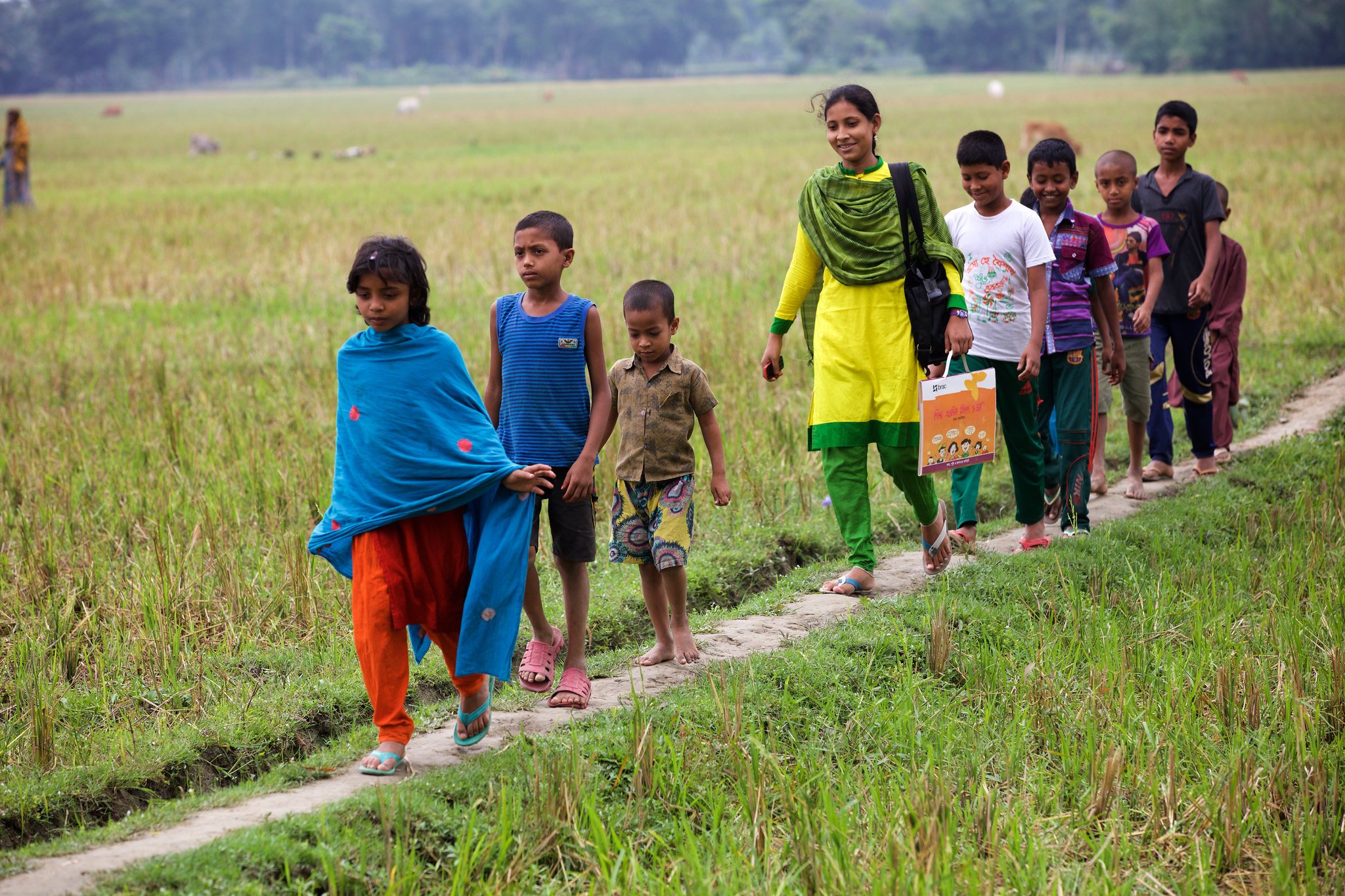
The COVID-19 pandemic has worsened the already fragile health that many boys and girls achieved when attending school. © BRAC/ Shahina Akhte
These benefits are more evident when the improvements take place in the most neglected communities, which are the ones that suffer most from the scourge of childhood diseases. The projects of the Foundation in India with the forgotten Chenchu of the forest area of Nallamala, and with tribal groups in the remote mountains of northern Thailand show the importance of turning schools into the pillar of community health for a double immediate benefit: to decrease the rate of diarrheal diseases and increase schooling. The interventions must be a priority in the areas most affected by epidemics, such as Mymensingh, in Bangladesh, where more than 21 % of the population has been hospitalized at the Upazilla Health Complexes (primary public hospitals) at some point due to water-borne diseases.
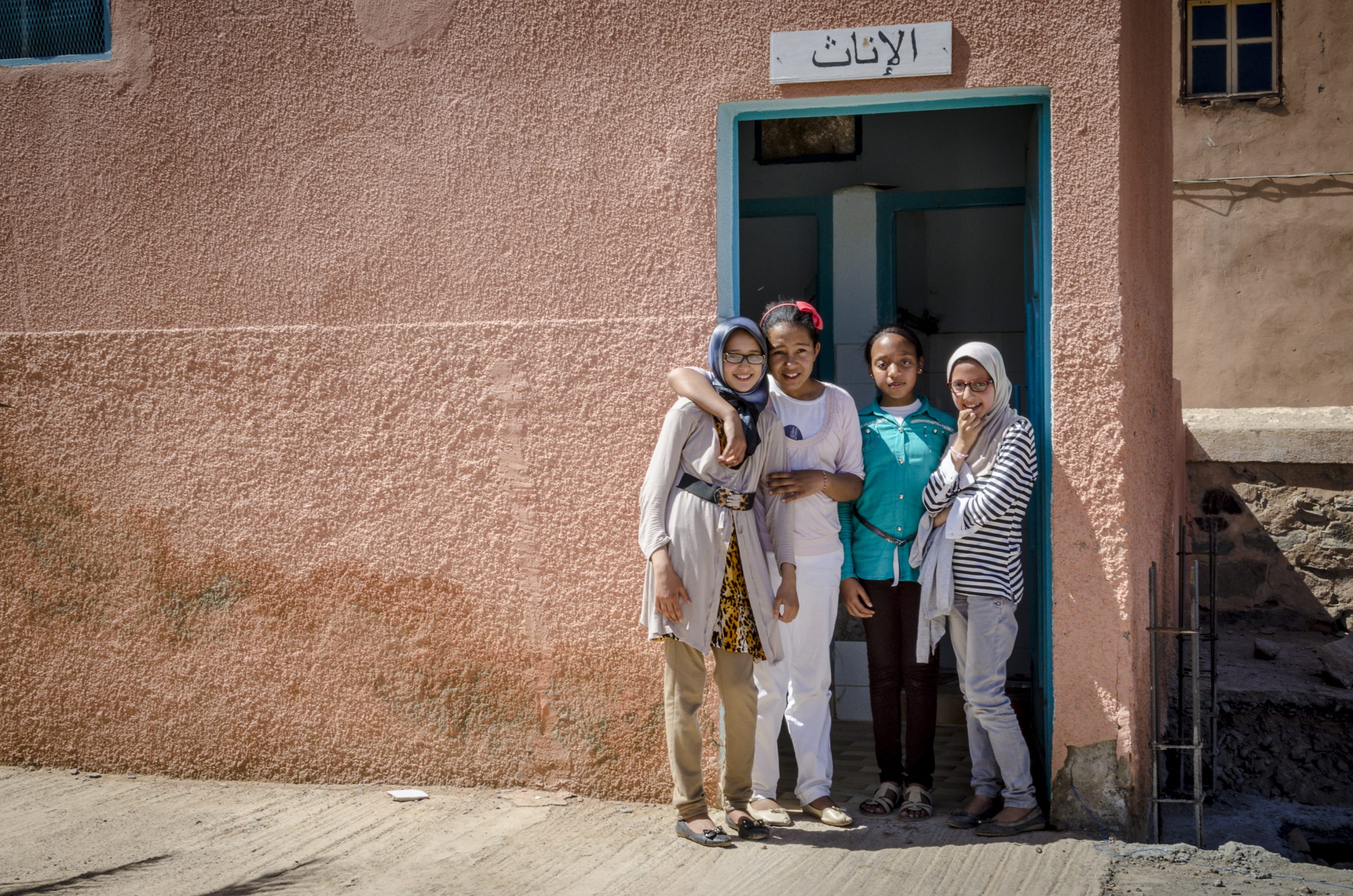
In the Sous-Massa region, the Foundation has intervened in schools improving deteriorated health infrastructures. © Carlos Garriga / We Are Water Foundation
It is also in the most abandoned areas of Morocco that we find the most vulnerable communities. In them, handwashing is rarely carried out due to the lack of knowledge and facilities. The diarrhea rate, for instance, continues to be very high among young children, representing the second factor of infant mortality in the country, with a prevalence rate of 22 % in children under the age of 5. This indicator is multiplied by five in rural areas, such as the ones in the Guercif province, in the Eastern region, and in the Sous-Massa region, where the Foundation has intervened in schools improving deteriorated health infrastructures and driving awareness-raising hygiene and health programs for the entire community.
The COVID-19 pandemic has worsened the already fragile health that many boys and girls achieved when attending school: the daily meal they received has been discontinued in many regions of the world such as in sub-Saharan Africa or southern Asia. However, before the pandemic, many of these meals did not achieve their nutritional goals due to the lack of drinking water to accompany them. This happens, for instance, in the public schools of Bandi Atmakur and Venkatapuram in India, where, although the government of Andhra Pradesh provides midday meals every day, paradoxically it does not provide drinking water to students, who must access the available water in the village, most of which is polluted.
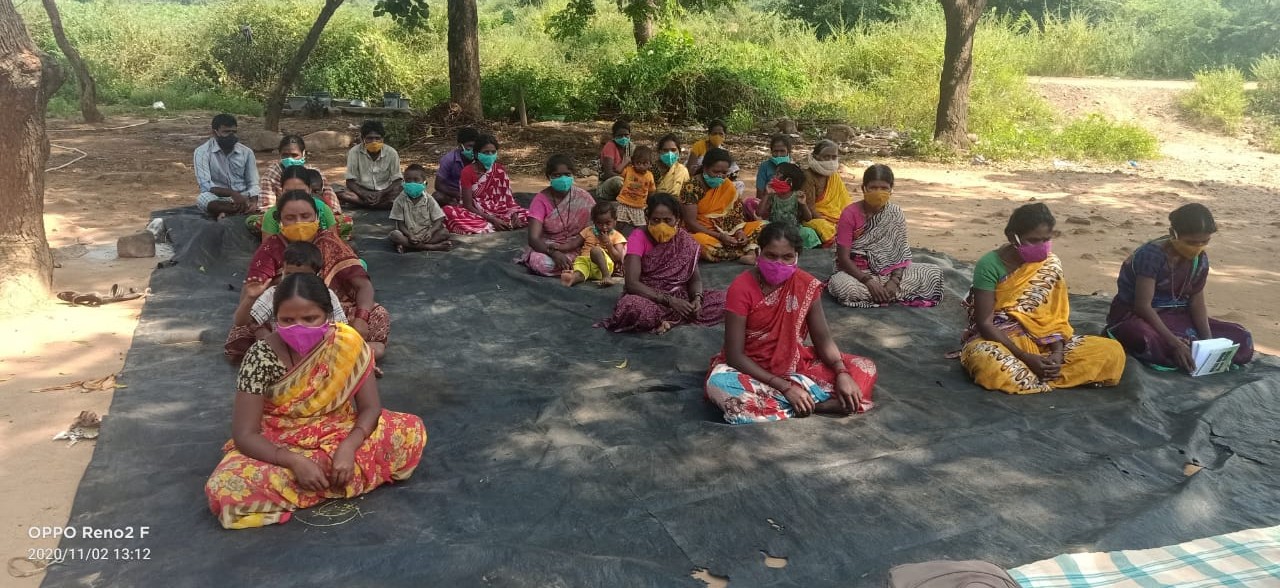
In the public schools of Bandi Atmakur and Venkatapuram in India, where, although the government of Andhra Pradesh provides midday meals every day, paradoxically it does not provide drinking water to students. © Fundación Vicente Ferrer.
This also happens in Nicaragua, in the schools of San Lorenzo-Boaco and Yalí-Jinotega, an area where the Foundation is also intervening. There, the groundwater sources are unable to supply the population or the schools during the dry season, and the great distance to the wells and the poor infrastructure of the pipes affects both the access to water and its healthiness. There are similar situations in Uganda, where children of the Wakiso orphanage suffer diseases caused by the use of non-drinking water; or in Guinea-Bissau, where the intervention of the Foundation in 35 schools of the Tombali region has helped 10,000 children and 9,000 adults to fight the scourge of infant mortality. The benefits of adequate water and sanitation are also necessary for the communities of Bolivia’s “disperse rural population”, which suffer from high rates of malnutrition and child morbidity and are also highly vulnerable to climate change.
The best expression of solidarity
Without schools that are capable of providing access to sanitation it is not possible to achieve a dignified life that promotes solidarity. Migratory crises that have increased due to all kinds of violent human conflicts, natural disasters and droughts put high pressure on migrants and host human groups. The severe problem of reception experienced by communities with poor sanitation facilities often goes unnoticed in the media. A little-known example is that of the Lebanese schools in the Bekaa valley, which have received the impact of more than 350,000 Syrian migrants fleeing the war in their country who were already suffering from a lack of water and sanitation before the crisis.
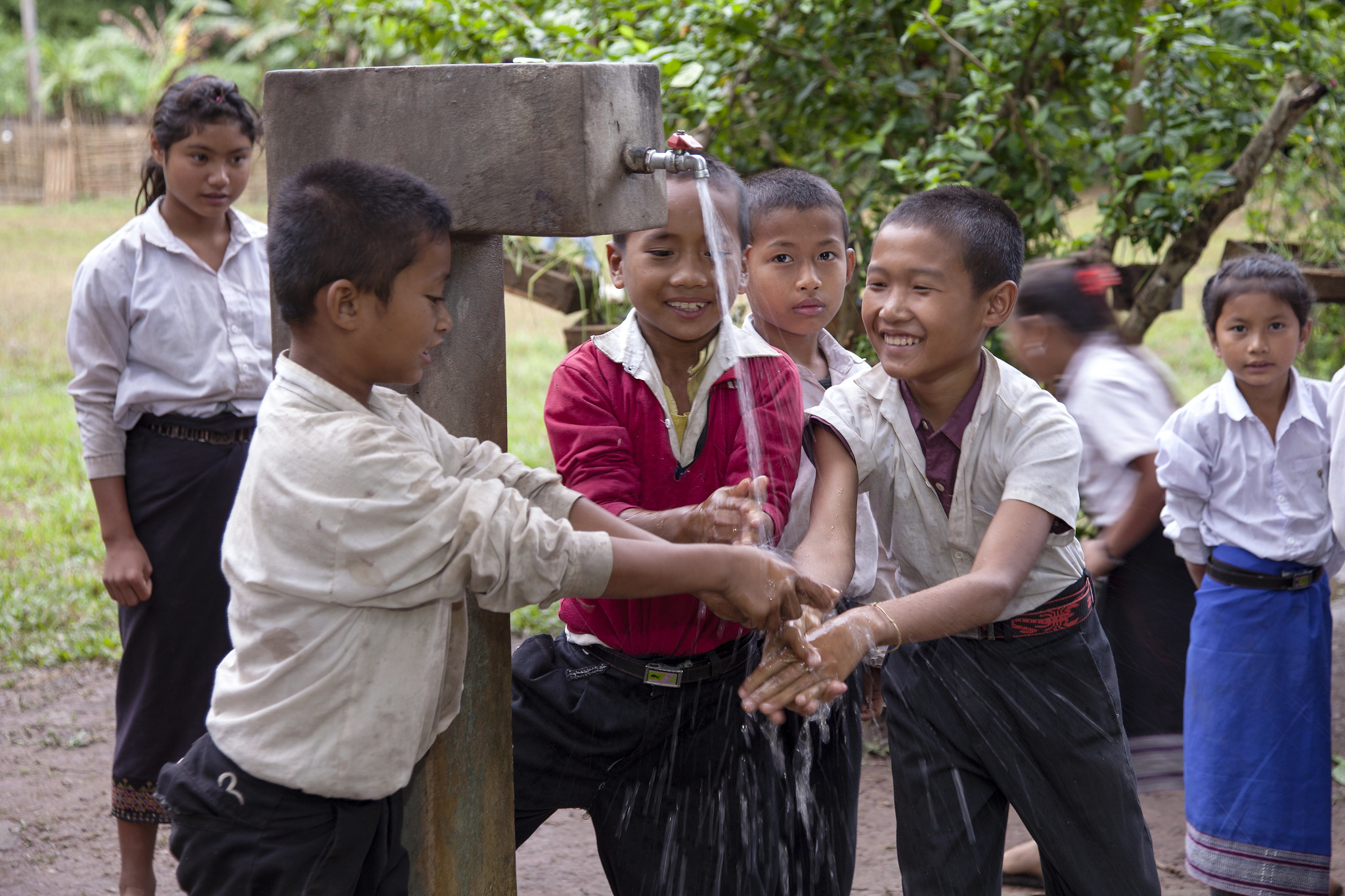
Without schools that are capable of providing access to sanitation it is not possible to achieve a dignified life that promotes solidarity. © World Bank
Just as the solidarity of Lebanese schoolchildren with the Syrians they host cannot materialize without the health and dignity provided by clean water and sanitation, we cannot imagine a world of solidarity without a protected and educated childhood. No SDG can be attained without a clean, dignified and inclusive universal school. This must be a priority goal if we are to move forward.


